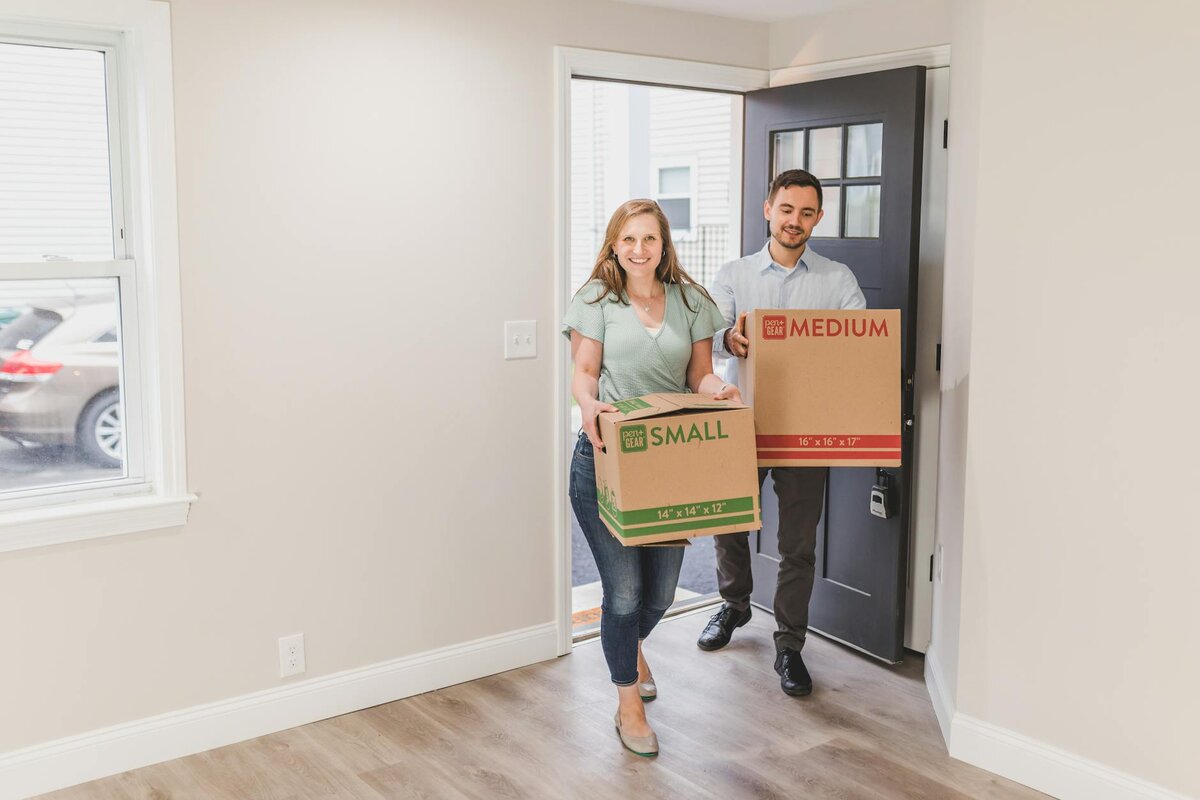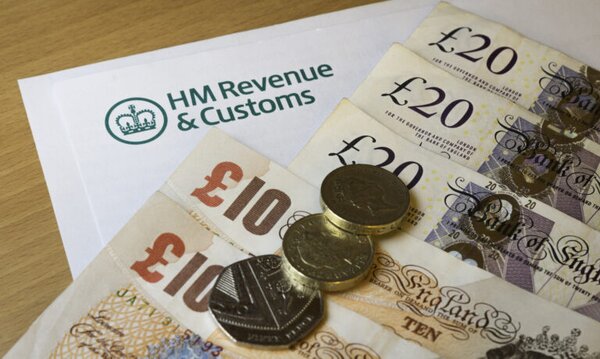Lets get started...
Council tax is a charge that local authorities collect to fund services like rubbish collection, police, and fire services. It's a yearly bill that's typically split into monthly payments. For most rental situations, the tenant is responsible for paying council tax. This is the default position in standard tenancy arrangements, though there are exceptions to this rule.
Understanding who pays when can save both parties from unexpected bills and disputes. In some circumstances, landlords may end up responsible, particularly when properties sit empty or have special occupancy arrangements.
Council tax bands and how your property is valued
Council tax bands are the foundation of how much council tax you’ll pay on a property, and they’re set by the Valuation Office Agency (VOA). The VOA determines your council tax band by assessing your property’s value, taking into account factors like its size, layout, location, and even local house prices at a specific point in time.
Knowing your property’s council tax band is crucial for both landlords and tenants, as it directly affects how much you’ll need to pay council tax each year. You can easily check your council tax band online through the government’s website or by contacting your local council. If you think your property’s band is incorrect, you can request a review from the Valuation Office Agency.
For landlords, understanding your council tax band helps you budget for periods when you’re responsible for the bill, such as during voids. When you pay council tax as a landlord, you can claim it as an allowable expense on your tax return, which reduces your taxable profit and ultimately lowers your tax bill.

What are the self assessment council tax rules for landlords and tenants?
Self assessment council tax rules refer to how landlords must report and potentially claim council tax payments on their tax returns. For landlords, council tax paid during empty periods can be claimed as an allowable expense against rental income. These are expenses incurred as part of running a rental business and may qualify for a tax deduction.
Tenants generally don’t include council tax on any self assessment forms as it’s considered a personal expense, not a tax-deductible item. This distinction is important for both parties to understand.
If you’re running an HMO, you’ll likely pay the council tax yourself and include it as a business expense. Record-keeping is vital - save all council tax bills and payment receipts for at least six years in case HMRC requests them. Proper records are essential for completing your assessment tax returns and to support any claim expenses made on your self assessment.
When do landlords become responsible for council tax?
Landlords typically become liable for council tax during 'void periods' when their property sits empty between tenancies. If your tenant moves out and the property remains unoccupied, you'll need to notify the council and start paying the bill yourself.
For HMOs, landlords usually handle the council tax payments regardless of occupancy. This is because the property is rented by room rather than as a whole unit, creating different liability rules.
Short-term holiday lets and student properties follow different regulations. Holiday lets often attract business rates instead of council tax, while student properties can be fully exempt, though you'll need to verify your tenants' student status with the local council.
What council tax discounts can help reduce your tax burden?
Empty properties may qualify for discounts during void periods, though these vary between councils. Some offer reduced rates for up to 6 months, while properties undergoing major renovations might get a discount or even an exemption while uninhabitable.
Single-occupancy households qualify for a 25% discount, which tenants should apply for directly with the council. Properties occupied solely by full-time students are exempt from council tax entirely, representing a significant saving for student landlords.
Second homes and furnished holiday lets might qualify for discounts in some areas. However, many councils now charge full rates or even premiums on second properties to discourage empty homes in high-demand areas.

What are the self assessment council tax rules for landlords and tenants?
Self assessment council tax rules refer to how landlords must report and potentially claim council tax payments on their tax returns. For landlords, council tax paid during empty periods can be claimed as an allowable expense against rental income. These are expenses incurred as part of running a rental business and may qualify for a tax deduction.
Tenants generally don’t include council tax on any self assessment forms as it’s considered a personal expense, not a tax-deductible item. This distinction is important for both parties to understand.
If you’re running an HMO, you’ll likely pay the council tax yourself and include it as a business expense. Record-keeping is vital - save all council tax bills and payment receipts for at least six years in case HMRC requests them. Proper records are essential for completing your assessment tax returns and to support any claim expenses made on your self assessment.
When do landlords become responsible for council tax?
Landlords typically become liable for council tax during 'void periods' when their property sits empty between tenancies. If your tenant moves out and the property remains unoccupied, you'll need to notify the council and start paying the bill yourself.
For HMOs, landlords usually handle the council tax payments regardless of occupancy. This is because the property is rented by room rather than as a whole unit, creating different liability rules.
Short-term holiday lets and student properties follow different regulations. Holiday lets often attract business rates instead of council tax, while student properties can be fully exempt, though you'll need to verify your tenants' student status with the local council.
What council tax discounts can help reduce your tax burden?
Empty properties may qualify for discounts during void periods, though these vary between councils. Some offer reduced rates for up to 6 months, while properties undergoing major renovations might get a discount or even an exemption while uninhabitable.
Single-occupancy households qualify for a 25% discount, which tenants should apply for directly with the council. Properties occupied solely by full-time students are exempt from council tax entirely, representing a significant saving for student landlords.
Second homes and furnished holiday lets might qualify for discounts in some areas. However, many councils now charge full rates or even premiums on second properties to discourage empty homes in high-demand areas.

How can landlords properly record council tax for tax purposes?
Create a separate category in your accounts specifically for council tax payments you’re responsible for. Always keep the original bills alongside proof of payment, and retain bank statements as part of your financial records to verify rental income and allowable expenses, ensuring digital copies are clearly organised by property and tax year.
Record the exact periods the council tax covers, especially if they span two tax years. If you manage multiple properties, track council tax separately for each one to ensure accurate reporting on your self assessment return.
Use a reliable system to flag when void periods begin and end, as this affects when you become liable for payments. This proactive approach will save hours of stress when preparing your annual tax return.
What should tenants understand about council tax and their rights?
Tenants should check their council tax band before renting, as the amount varies significantly between different bands. If you live alone as a tenant, you're entitled to a 25% single-person discount , make sure you apply for it promptly.
Full-time students should apply for student exemption as soon as they move in, providing their student certificate to the council. When moving out, give written notice to both the landlord and council about your leaving date to end your liability.
Tenants can't be forced to pay council tax for periods before they moved in or after they moved out, regardless of what a landlord might claim. Understanding these rights helps prevent overpayment and unnecessary disputes.
How does council tax support local services?
When you pay council tax, you’re directly supporting a wide range of essential local services provided by your local authority. Council tax funds everything from education and social care to waste management, police, fire services, libraries, and leisure facilities. The amount you pay is based on your property’s council tax band and the rate set by your local council, so it can vary significantly depending on where your property is located.
For landlords, council tax paid during periods when the property is empty or when you’re otherwise responsible can be claimed as an allowable expense on your self assessment tax return. This helps reduce your taxable profit and lowers your overall tax bill. Keeping up with your council tax bill not only keeps you compliant but also ensures that vital local services continue to run smoothly for everyone in the community.
Understanding the link between council tax and local services can make paying your council tax bill feel a little less painful, after all, it’s an investment in the schools, emergency services, and amenities that benefit your tenants and the wider area. Always include council tax payments in your tax return where eligible, and keep records to support your claims on your self assessment.

How can Pie help with your property tax obligations?
Managing property taxes can be complicated, especially when juggling multiple properties or changing circumstances. Pie is the UK’s first personal tax app designed specifically for working individuals, including landlords dealing with self assessment. Pie helps landlords manage their property business efficiently, ensuring they meet all tax obligations and stay compliant with property business tax rules.
Unlike other solutions, Pie offers integrated bookkeeping alongside real-time tax figures, making it easier to track expenses like council tax payments. The app simplifies tax return processing, ensuring you claim all eligible expenses while maintaining compliance.
When council tax questions arise, Pie provides timely expert advice to help you navigate your specific situation correctly. This combination of features helps landlords stay organised and compliant throughout the tax year.
What should you do next to ensure council tax compliance?
Review your current tenancy agreements to confirm they clearly state council tax responsibilities. Additionally, check if any of your properties qualify for discounts or exemptions you haven't yet claimed.
Set up a reminder system for when tenancies end to prompt you to notify the council about liability changes. Organise your council tax records to ensure you can easily find what you need at tax return time.
Consider using Pie tax to streamline your property tax management and ensure you're claiming everything you're entitled to. Taking these proactive steps will help you avoid common pitfalls and maintain compliance with both council and HMRC requirements.











